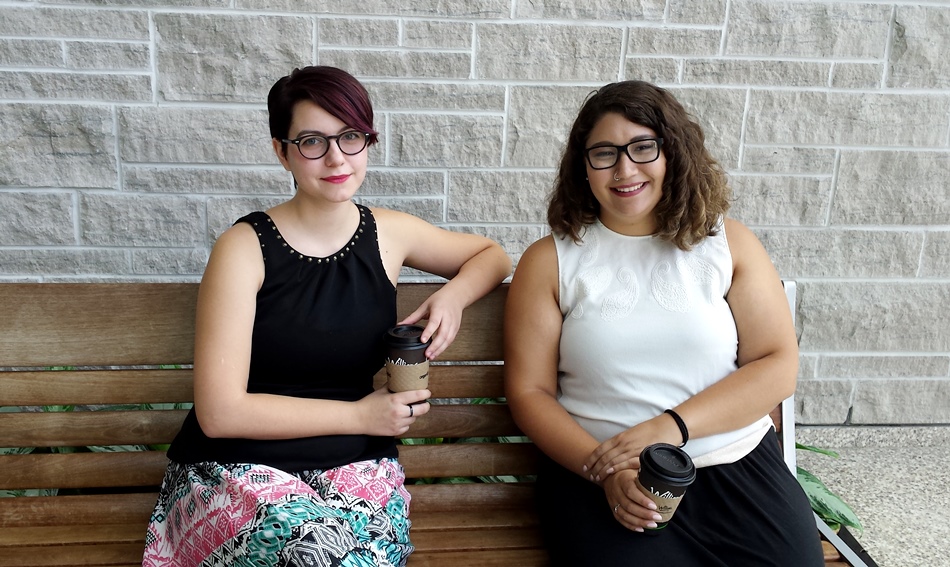Learning how to teach made them better students

No, they’re not reading your minds… (L. to R.) Irina Ghilic ’11 and Amy Pachai ’13 take a moment to psychoanalyze how working as undergraduate TAs for MacIntroPsych was a life-changing experience for them. Both are now working toward their PhDs in psychology at McMaster.
When she was in her first year at McMaster, Irina Ghilic ’11 felt a little lost and disconnected. Then something happened in her third year that changed everything. She started working as a TA for MacIntroPsych.
“It was the best experience of my undergrad,” says Ghilic. “That’s how I started connecting with people at the university. It really gave me a purpose, other than taking courses.”
Amy Pachai ’13 had a similar experience when she enrolled at Mac a few years later. Once she discovered MacIntroPsych and learned more about the many facets of psychology, she decided to apply to become a TA at the end of her second year. “It truly changed my life path,” says Pachai of the teaching experience.
They are quick to point out that learning how to teach made them better students. They also participated in research projects while still undergraduates. “Once I started TA-ing and doing research, my grades just skyrocketed,” recalls Ghilic.
Both are now devoted teachers and proud mentors to many former undergraduates. “There’s a lot of joy knowing that I had a small part in making them love psychology the way I love it. That’s so rewarding,” says Pachai.
Both are now pursuing PhDs in psychology at McMaster. Ghilic is TA-ing a Research Methods class, while Pachai is – fittingly – TA-ing the MacIntroPsych course that teaches TAs how to teach.
“A key strength of the MacIntroPsych program is that research and student feedback drive the innovative changes in the course,” says Joe Kim ’95, ’00, associate professor in the Department of Psychology, Neuroscience & Behaviour. He took over as the MacIntroPsych coordinator in 2007, launching its innovative web module format.
Kim also leads the Applied Cognition in Education Lab and organizes the annual McMaster Symposium on Education and Cognition each August.
MacIntroPsych now accommodates some 2,400 students per semester. Kim will routinely receive 200 applications from upper-year undergraduates for 20 or so available TA positions. The TAs lead the small-group tutorials and are tasked with learning everyone’s names.
Using undergraduates as TAs was an innovation launched by Dick Day ’77, who has been teaching psychology at McMaster for the past 45 years and is still going strong with five upper-year psychology courses.
Over the years, Joe Kim and Dick Day have taught psychology to a collective total of more than 130,000 students at McMaster. Read about them in “Then & Now” on page 33 of the fall issue of the McMaster Times.


